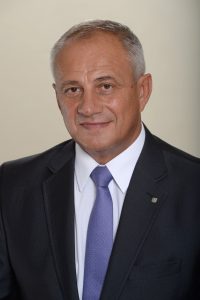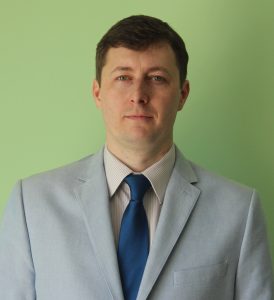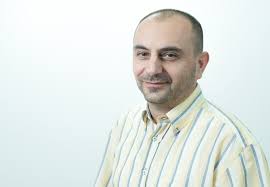
dr.h.c. Prof. Dr. Jozef Zajac
Dean of Faculty of Manufacturing Technologies with a seat in Prešov
Technical University of Košice
Slovak Republic
Title: Chemical management in automotive and mass industry
Abstract
Cutting fluids play a significant role in machining operations and impact shop productivity, tool life and quality of work. They are also a key factor in machine shop productivity and production of quality machined parts. Today’s cutting fluids are special blends of chemical additives, lubricants and water formulated to meet the performance demands of the metalworking industry. The paper presents the main specifications for a monitoring of processing fluids for bearings and automotive industries. The implementation of fluid outsourcing in these industries. There is presented method of monitoring and diagnostic of processing fluids in real conditions.
Keywords: fluid contamination, metalworking cutting fluids
Bio
Throughout his professional life, his work is closely linked to the transfer of knowledge from his own science school into practice. He is characterized by engaging young researchers in all activities and working to create interdisciplinary teams, including the participation of practitioners in application research. He lectured his knowledge at many distinguished conferences both at home and abroad and in scientific journals. He was and currently is the leader of the scientific teams of the APVV, KEGA and VEGA projects. He is also responsible for mobility programs under the framework of projects ERASMUS and CEEPUS.
In the pedagogical field, he lectures the subjects Progressive Technologies, Manufacturing Technologies and Innovation and Technology Transfer. The Industrial Property Office is the guarantor of the Intellectual Property Protection Course and lectures are focused on creativity in science. He was the supervisor of 63 diploma theses. He was supervisor of 16 defended dissertation theses, one of them was foreign. Currently he is supervising 5 PhD students, three of them after rigorous exam.He is member of scientific boards of Technical University of Kosice, FMT TUKE, MTF STU Bratislava, SjF STU Bratislava,SjF ŽU Zilina, FHPV PU in Presov and:
- Chair member of KEGA (Cultural and education grant agency MŠVVaŠ SR) and vice chair of commission no. 2
- member of the Technical Science Council APVV
- Member of the Commission for Technological Development and Innovation of the National Council of the SR
- Member of the Commission for the Business Environment, Support of SMEs and Tradesmen of the National Council of the Slovak Republic
Professor Zajac was and currently is responsible for solving the following educational and research projects, international projects and applied research projects.

Assoc.Prof. Olaf Ciszak, Ph.D., DSc.
Dean of Faculty of Mechanical Engineering and Management
Poznan University of Technology
Poland
Title: Industry 4.0: Most important technologies
Abstract: Continuous development in the area of manufacturing depending on introducing innovative technical-technological solutions should increase competitiveness and is a requirement of the present-day market.
The current fourth industrial revolution forces up the process of constant adaptation of enterprises to technological changes, not to “sleep” the chance of success in a very competitive market.
In the article, selected, the most important according to the author, technologies and trends of their development, which have a chance to change the manufacturing related to automation and digitization – for example: Virtual Reality / Augmented Reality, Collaborative Robots, Automated Guided Vehicles, Additive Technologies (3D Printing) and others will be presented.
Keywords: Industry 4.0, Virtual reality, Augmented Reality, Collaborative Robots,
3D printing, Manufacturing,
Bio:
Olaf Ciszak received an MSc in mechanical engineering in the field of machine technology in 1994, four years later he completed his Ph.D. (Modern issues of machinery construction and operation and technical systems) at the Faculty of Mechanical Engineering and Management of Poznan University of Technology. from 2008 till 2012 director for scientific research of Institute of Mechanical Technology. He was awarded the degree of habilitatus doctor of technical sciences in 2013. From 2013 till 2014 he was a vice- dean for research at Faculty of Mechanical Engineering and Management. He is currently working as an Associate Professor at the Institute of Mechanical Technology of the Faculty of Mechanical Engineering and Management. Since 2014 he is also a Dean of Faculty of Mechanical Engineering and Management at Poznan University of Technology. Since 2015 editor-in-chief Archives of Mechanical Technology and Material, a scientific journal published by De Gruyter.
Olaf Ciszak research interests cover the area of machinery construction and operation, and in particular, they concern robotisation of technological processes, assembly technology and industry 4.0. He is the author and co-author of many publications, monographs, academic scripts and patent applications. He has implemented a number of research projects framework co-financed by the European Union, Ministry of Science and Higher Education, and the National Centre for Research and Development.
Olaf Ciszak was awarded the bronze medal for Long Service conferred by the President of Poland for long and honorable service for Poland. He was also awarded by the Rector of Poznan University of Technology for his scientific, educational and organizational achievements. He was awarded by Ministry of Science and Higher Education for the international invention achievements.

Assoc. Prof. Vitalii Ivanov, Ph.D., Ing.Paed.IGIP
Faculty of Technical Systems and Energy Efficient Technologies, Department of Manufacturing Engineering, Machines and Tools, Sumy State University Ukraine
Title: Multiaxis Machining of Complex Parts in Multiproduct Manufacturing
Abstract:
To provide the machining accuracy of parts on metal-cutting machine-tools fixtures appointed for accurately locating and reliable workpiece clamping are used. The expansion of technological capabilities of modern CNC machining centers necessitates the improvement of design procedures in production planning is needed. The variety of parts and the tendency to increase their complexity, as well as the desire to reduce the cost of time, makes it necessary to find new approaches to the design of tooling. The report delivers the designs of flexible fixtures, which provides sufficient tool availability and allows multiaxis machining of complex parts at one setup. The ways of intensification and manufacturing process of complex parts machining with a significant reduction of auxiliary and preparatory time are offered. Studies performed by numerical simulation methods and experimental investigations confirmed that the proposed approach meets all the accuracy parameters. The results of static structural, modal, and harmonic analyses confirmed that the proposed fixtures had sufficient strength and dynamic stiffness, which allows it to be used with intensive cutting modes that are characteristic of modern machines and cutting tools. The oscillation amplitudes in places of the work surfaces in the proposed device do not exceed the tolerances for the manufacturing of these surfaces.
Keywords: metal-cutting, multiaxis machining, design, numerical simulation, manufacturing
Bio:
Vitalii Ivanov, Ph.D., ING.PAED.IGIP, Associate Professor of the Department of Manufacturing Engineering, Machines and Tools, Vice Dean for International Affairs, and Erasmus+ coordinator of the Faculty of Technical Systems an Energy Efficient Technologies of Sumy State University (Ukraine). Dr. Ivanov is a member of ASME, IAENG, IGIP, EAI, an associate member of EuroScience, and senior member of theIRED. Dr. Ivanov is a General Chair of the DSMIE (Ukraine, 2018, 2019), Program Committee member of MMS (Slovak Republic, 2017; Croatia, 2018; Poland, 2019), ISE (Czech Republic, 2018, 2019), Regional HELIX 2018 (Portugal, 2018), MANUFACTURING 2019 (Poland, 2019), IManE&E (Romania, 2019), PAIC (Poland, 2019), ICIE (Portugal, 2020).
Dr. Ivanov took part in research projects funded by the Ministry of Education and Science of Ukraine, State Fund for Fundamental Researches, Ukrainian manufacturing companies, EU grant program TEMPUS, Czech Development Agency. He was awarded a Scholarship of Cabinet of Ministers of Ukraine for Young Researches in 2011 and 2014, Fellowship for Research Internship from Ministry of Education and Science, Youth and Sports of Ukraine in 2011 and 2012, National Scholarship of the Slovak Republic in 2015, JICA Knowledge Co-Creation Fellowship in 2016, Erasmus+ scholarship for teaching (Poland, 2018; Romania, 2018).
Dr. Ivanov carried out researches in Germany, USA, Slovak Republic, Czech Republic, Poland, and Romania. He took part in training in Great Britain, Italy, Uzbekistan, Georgia, Japan. Dr. Ivanov lectured courses at Poznan University of Technology (Poland), University of West Bohemia (Czech Republic), Technical University of Cluj-Napoca (Romania), Technical University of Kosice (Slovak Republic).
Dr. Ivanov’s research activities concern fixture design, include analysis, multicriteria optimization, verification; CAx technologies for manufacturing engineering; multiaxis machining of complex parts for the automotive industry; energy-efficient technologies for engineering; augmented reality for manufacturing and education; innovations for engineering education. His works within this scope were published in textbooks, monographs, national and international peer-reviewed journals and conference proceedings, patents, and presented at many scientific conferences.
Prof. Dr. Dragan Peraković
Head of Department of Information and Communication Traffic
Faculty of Transport and Traffic Science,
University of Zagreb
Republic of Croatia
Title: Identification of the relevant parameters for modeling the communication ecosystem elements
in Industry 4.0
Abstract :
The development of information and communication technologies leads to more efficient logistics and production processes through the implementation of the Industry 4.0 concept. For this purpose, it is important to establish all elements of the communication ecosystem with the aim of delivering accurate and real-time information to end users. Today’s scientific research literature does not provide enough insight into the field of modeling unique integrated Industry 4.0 ecosystem with the aim of delivering the required services. The aim of this research is to identify the relevant parameters required for modeling ecosystem elements within the Industry 4.0 concept. The identification of relevant parameters provides a starting point in the field of modeling ecosystem elements for the purpose of creating unique integrated system. In the process of designing, it is important to create new business models in telecom operators area for the purpose of more efficient business within the concept of Industry 4.0. The paper also shows the impact of business transition from traditional to digital business by comparing current business models.
Keywords: Modelling, Environment, System, Digital Company, Industry 4.0
Bio :
Prof. Dr. Dragan Peraković graduated and completed his Master’s degree and Ph.D. (doctoral dissertation title: ‘The Model of Information Distribution to Traffic System Users’) from the Faculty of Transport and Traffic Sciences (FPZ) at the University of Zagreb. Post graduation, he began his career at the FPZ where he currently holds the positions of Head of Department for Information and Communication Traffic and Head of Chair of Information Communication Systems and Services Management.
He has engaged in several international scientific projects and R&D studies as a researcher, leading researcher and evaluator (CiViTAS ELAN, Harmonized Inland Navigation Transport Through Education and Information Technology – HINT, Green Intermodal Freight Transport – GIFT, etc.). He was the initiator and leading researcher for many important national projects such as the Research of the Context of the use of Smartphones and Related Information and Communication Services, Research of Possibilities on Applying the IoT Concept to Improve the Safety Movement of Blind and Visually Impaired Persons along the Traffic Network, Information and Communication Services for the Movement along the Traffic Network by the Persons of Reduced and Difficult Mobility, etc.
He is an author/co-author of more than 100 science papers (including two CC papers) and studies presented in journals and proceedings of international conferences, and five chapters in international scientific books. He also participated in educational activities within the Faculty, as a lecturer and mentor for undergraduate and graduate study programs. Until now, he has been mentoring more than 100 undergraduate and graduate students and 3 postgraduate doctoral students.
Prof. Dr. Dragan Peraković is a member, board member and official editor of many journals and conferences of his profession, such as International Telecommunications Society (ITS), International Telecommunication Union (ITU), IEEE Communications Society, European Alliance for Innovation (EAI), DAAAM International, The Society of Digital Information and Wireless Communications (SDIWC), Scientific Council for Traffic of Croatian Academy of Sciences and Arts (HAZU) and the Croatian Chamber of Traffic and Transport Technologies (HKITPT), etc.
Prof. Dr. Dragan Peraković is chief editor of the International Journal of Cyber-Security and Digital Forensics (IJCSDF).


